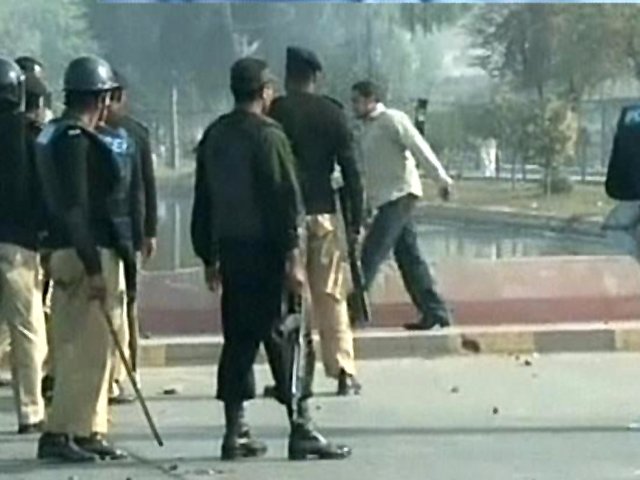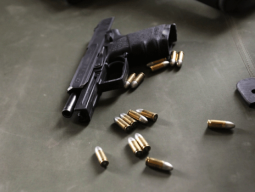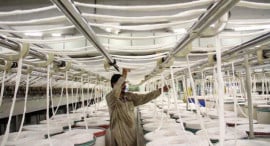
ISLAMABAD: Recent clashes among student groups at various universities have once again raised questions about government policies towards administering of institutes of higher learning and the future of student politics in the country.
As part of a series of unfortunate though unrelated events that made headlines in recent weeks, Hazara University was closed on June 11, 2015, for an indefinite period after a clash broke out between two student groups left 12 people injured.

Not only gunshots were fired, a hand grenade was also used in the clash. The university was vacated and closed for an indefinite period following the incident.
In a similar incident, 12 people were injured when groups of Pashtun and Saraiki students clashed at the Federal Urdu University of Arts, Sciences and Technology (FUUAST) Islamabad on June 9, 2015. A student had told The Express Tribune that alleged harassment of a woman student was the reason behind the incident. Over a dozen students were arrested by the police. The university that closed after the incident will reopen today (Monday).
These and various other violent incidents have emphasised the need for redefining the role of religious, political, ethnic and sectarian student groups on campuses.
General Ziaul Haq’s regime banned student unions and federations in 1984 throughout the country. The government had cited growing incidents of violence on campuses to ban the unions.

Former primer minister Benazir Bhutto tried to and later PM Yousuf Raza Gilani announced to lift the ban on student unions but in vain.
“Student unions were once the nurseries where political leadership emerged. Debates between students from opposing parties on social, academic and political issues, is now history,” said Adnan Qureshi, a faculty member at the Islamia University Bahawalpur. He said such sittings encouraged tolerance among student for the opposing views and helped students in agreeing to disagree.
Quaid-i-Azam University (QAU) and the International Islamic University Islamabad (IIUI), like any other public-sector university, have a number of student groups, the former mainly along ethnic lines and languages, while the latter along religious and sectarian lines.
Clashes, protests and counter-protests at campuses have frequently led to disruption of academic activities at public-sector universities.
A member of a religious student organisation disagreed with the impression of violence and unrest tagged with unions. He said that student groups were conducting extra-curricular activities and helping address students’ issues.
Higher Education Commission (HEC) Chairperson Dr Mukhtar Ahmed termed student bodies as “pressure groups” and called for discouraging students from getting organised along religious, political or ethnic lines on campuses. Instead, he proposed to have debating clubs, literary societies and dramatics clubs to promote arts, culture and literature on campuses.
Former QAU Professor Dr Pervez Hoodbhoy said, “It is a fact that today students join groups because they have problems such as hostel resources, admission issues, and problems with the administration. This is impossible to stop, and no government has ever succeeded [in it].”
“A healthier option would be to allow student unions with recognised leaders who could be held responsible in case there is violence or disrespect for the law,” he said.
The former professor said he was in favour of having student unions, but under well-defined rules and regulations.
To a question about the role of political parties in student politics, he said: “At least initially political parties must not be allowed to have student wings on campuses. This would raise tensions and is likely to disrupt academic activity.” “But if some years later there is enough maturity among students, then they could be allowed,” the physicist added.
Published in The Express Tribune, June 15th, 2015.






















































COMMENTS
Comments are moderated and generally will be posted if they are on-topic and not abusive.
For more information, please see our Comments FAQ